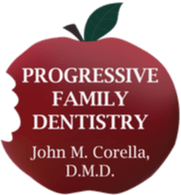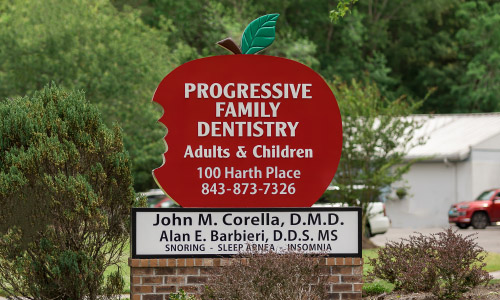Welcoming
New Patients!
Your Summerville, SC Dental Office
At Progressive Family Dentistry in Summerville, SC, we provide a variety of procedures to enhance, improve, or repair your smile. We are not just your ordinary dental office though! Not all mouths are the same; therefore, we provide individualized care and treatment plans.
In addition to our family and pediatric dentistry services, we specialize in advanced dental treatment including cosmetic dentistry. We pride ourselves on providing outstanding dental treatment in a caring environment. Our practice goal is always excellence through enthusiasm and exceptional patient relations with the highest standard of care!
Get Started with Us Today!
Stress-Free Dental Service
We believe that patients should have sufficient information to make educated decisions about their oral health, treatment options, and choice of dentist in Summerville, SC. That’s why we never pressure our patients into a procedure they’re not comfortable with or may not need. Our doctor and team practices evidence-based dental care.
Dr. Corella has been a success for more than 30 years because he follows evidence-based dentistry. This means that he takes in the relevant scientific evidence, compares it to the patient’s needs and preferences, then offers a professional opinion. Not only is Dr. Corella a leading dentist in the Summerville area, but our office is a full-service practice providing for all of your dental needs.
Our Services Include
A Little About Us
Dr. John M. Corella has been in practice since April of 1991. Dr. Corella prides himself on providing a family-friendly atmosphere that services adults and children. Since he focuses on providing evidence-based dentistry, each client gets a personalized experience where he will weigh potential options differently with each person. Dr. Corella and the team really take your smile to heart!
Progressive Family Dentistry wouldn’t be so highly regarded in the community if it wasn’t for our amazing staff. They are always going above and beyond to help patients by providing the information they need to make informed decisions.
Our staff will discuss all of your options and what to expect. They are here to answer your questions and address your concerns. It is their goal to give you a satisfying experience every time you walk through our doors. Quite simply, they are the best at what they do!
If you’d like to see more reviews, click here
Are you ready to become a patient of Progressive Family Dentistry?
Call us at 843-873-7326 or contact us here to get started!



